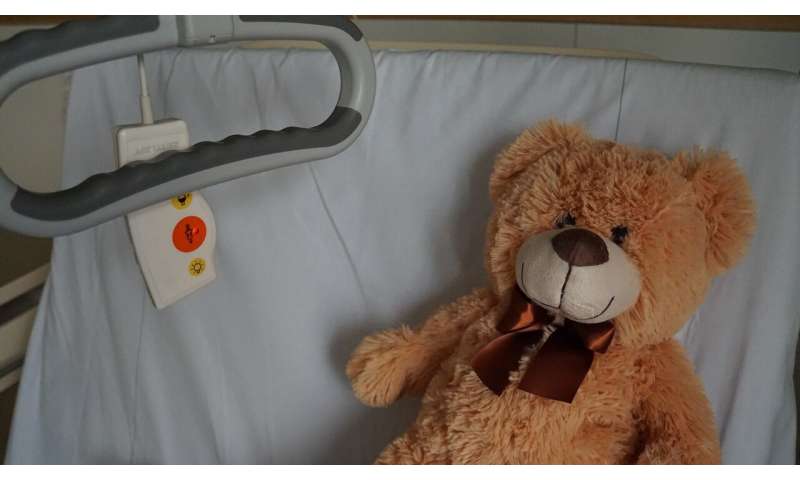
Ground-breaking research by the University of Birmingham has discovered a new technique to assess the aggressiveness of childhood brain tumors.
Funded by Children with Cancer UK, Action Medical Research and The Brain tumor Charity, the study is the first of its kind and will allow clinicians to give more personalized treatments for childhood brain cancers, which currently account for one third of all childhood cancer deaths in the UK.
Researchers took biopsies of childhood brain tumors over five years to study their chemical make-up in high precision.
They found that the level of lipids and glutamine they contained were direct indicators of how aggressive a tumor would be. The more glutamine a tumor contains, the less aggressive it is likely to be; the more lipids a tumor contains, the more aggressive it is likely to be.
The study also found a non-invasive technique can be used to measure these concentrations in higher precision than is currently being done in routine clinical practice. Clinicians can simply put patients through an MRI scanner, then use a Magnetic Resonance Spectroscopy (MRS) to determine the levels of glutamine and lipids in the tumor.
Introducing this method across UK clinical practice will help increase the odds of children with brain tumors receiving treatment. This non-invasive approach specifically benefits young patients with brain tumors in high-risk areas, such as the brain stem, who may not ordinarily undergo a biopsy due to the tumor’s sensitive location.
It will also enable clinicians to have a more accurate understanding of each tumor’s aggressiveness and to tailor treatments accordingly, so that they are only as toxic as they need to be.
Andrew Peet, research lead at the Children’s Brain tumor Research Team and Professor of Clinical Paediatric Oncology at the University of Birmingham and Birmingham Children’s Hospital, said: “This study is a huge step forwards towards the introduction of more personalized treatment for childhood brain tumor patients.
“Assessing how aggressive these tumors are at an earlier stage will help ensure that treatment is no more toxic than it needs to be, reducing the adverse effects on patients and improving their quality of life.”
Acting CEO of Children with Cancer UK Mark Brider, commented: “Childhood cancers are very different to those found in adults, they are often more difficult to treat and the treatment can be incredibly debilitating.
Source: Read Full Article
